MacBook Air vs Chromebook: which is the right laptop for you?
Not a fan of Windows? You’ve got two main options, then
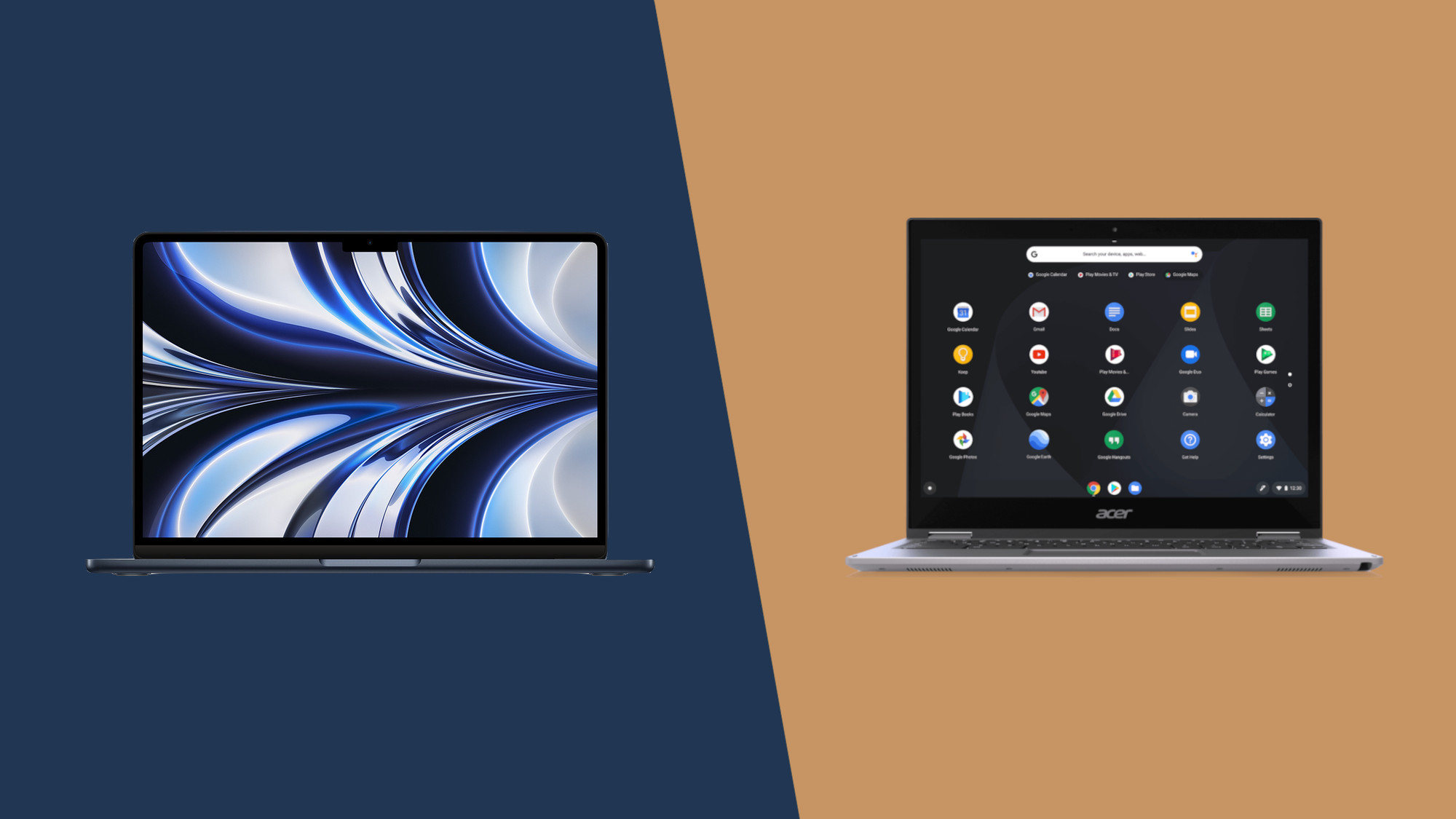
Sign up for breaking news, reviews, opinion, top tech deals, and more.
You are now subscribed
Your newsletter sign-up was successful
If you’re looking for a new portable PC and don’t want to buy a Windows laptop, there are two main competitors available to you. Yes, we know that you can install Linux on a laptop, but if you do that you’re probably so tech-aware that you hardly need our advice. For most consumers, the primary alternatives are MacBooks and Chromebooks.
Both of these have been around for ages, with the first Chromebooks launching in 2011 and the original MacBook releasing way back in the heady days of 2006. They’ve come a long way from their humble, incredibly chunky origins, with MacBooks becoming a favorite choice of premium laptops for creatives and professionals while Chromebooks have cornered the budget laptop market.
We’re going to be comparing Chromebooks to the MacBook Air specifically, since they’re closer in specs than the more powerful (and more expensive) MacBook Pro. Chromebooks are also typically compact and lightweight, making them just as good as the MacBook Air if you want a nice, small laptop to take to work, school, or on public transport.
We’ll break down the pros and cons of each, and hopefully determine which is best - or, at the very least, which one is right for you.
MacBook Air vs Chromebook: Price
If we were looking purely at price tags here, Apple would stumble and break a leg straight out of the gate. The new 2022 model of the MacBook Air (which uses Apple’s powerful new M2 chip) costs a whopping $1,199 (£1,249 / AU$1,899) - a price tag arguably more befitting of a premium Windows laptop or the more powerful MacBook Pro.
Older MacBook Air models such as the 2020 M1 version or Intel-powered editions came in at $999 (£999 / AU$1,599), but you can generally find them for less nowadays. They’re still more expensive than the best Chromebooks, which were always positioned as a more wallet-friendly alternative to conventional laptops.
While premium Chromebooks with similar pricing to the MacBook Air do exist - like the excellent Google Pixelbook Go and HP Elite Dragonfly Chromebook - most are quite a bit cheaper. The Chromebook Flip series from Asus sits in the $500-600 range depending on the specs, while you can snap up super budget options like the 2021 Acer Spin 311 for less than $300.
Sign up for breaking news, reviews, opinion, top tech deals, and more.
These cheap Chromebooks obviously won’t compete with any thousand-dollar laptop when it comes to performance, though. If you need a laptop with solid performance for running more intensive software, a MacBook Air with an M1 or M2 chip is likely to beat most Chromebooks hands down.
We’re still going to give the win to Chromebooks in this category, since the wide range of options to suit any budget is great for any potential buyer. But if you’re looking more towards the premium end of the scale, the MacBook Air still offers a sound price-to-performance proposition.
Winner: Chromebooks
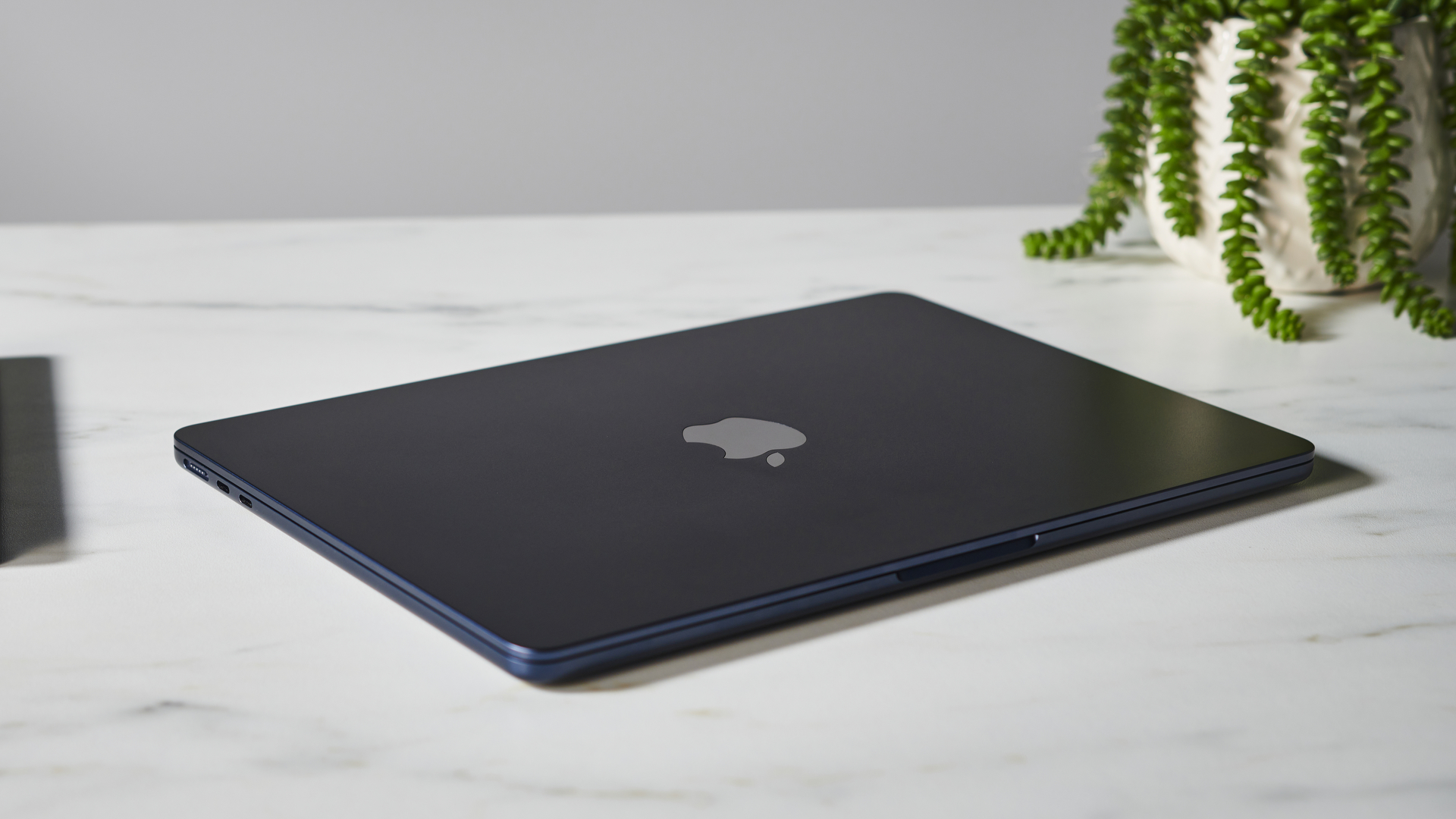
MacBook Air vs Chromebook: Features
The key difference here is the operating system: MacBooks use MacOS, while Chromebooks rely on the more cloud-focused ChromeOS. The former is arguably the more powerful OS, sitting closer to Microsoft Windows in terms of capabilities and user interface. ChromeOS, meanwhile, is super fast and smooth but more akin to Android-based tablet operating systems.
Since ChromeOS was designed with cloud computing in mind, it generally requires a constant internet connection in order to perform optimally. You can certainly use it offline, but some features won’t be available. MacOS functions fine without Wi-Fi access, and also has access to a wider range of available compatible software. ChromeOS is somewhat limited in this regard, even though it can now run apps from the Google Play Store. If you need a laptop to use specific software, there’s a good chance it won’t run on a Chromebook.
Beyond the OS, the MacBook Air doesn’t offer a huge amount in terms of physical features; we’ve got some Thunderbolt 4 ports and a clean 1080p webcam. Chromebooks will vary massively in terms of features, with basic models usually just featuring a basic port selection and a 480p or 720p webcam. It’s very much a ‘get what you pay for’ situation.
One significant advantage of Chromebooks is that many are available in 2-in-1 or detachable tablet configurations, packing a touchscreen and occasionally a stylus for a more user-friendly experience. While these models can be a bit more expensive, it’s a great advantage if you want the flexibility to swap between laptop and tablet modes.
Winner: Draw
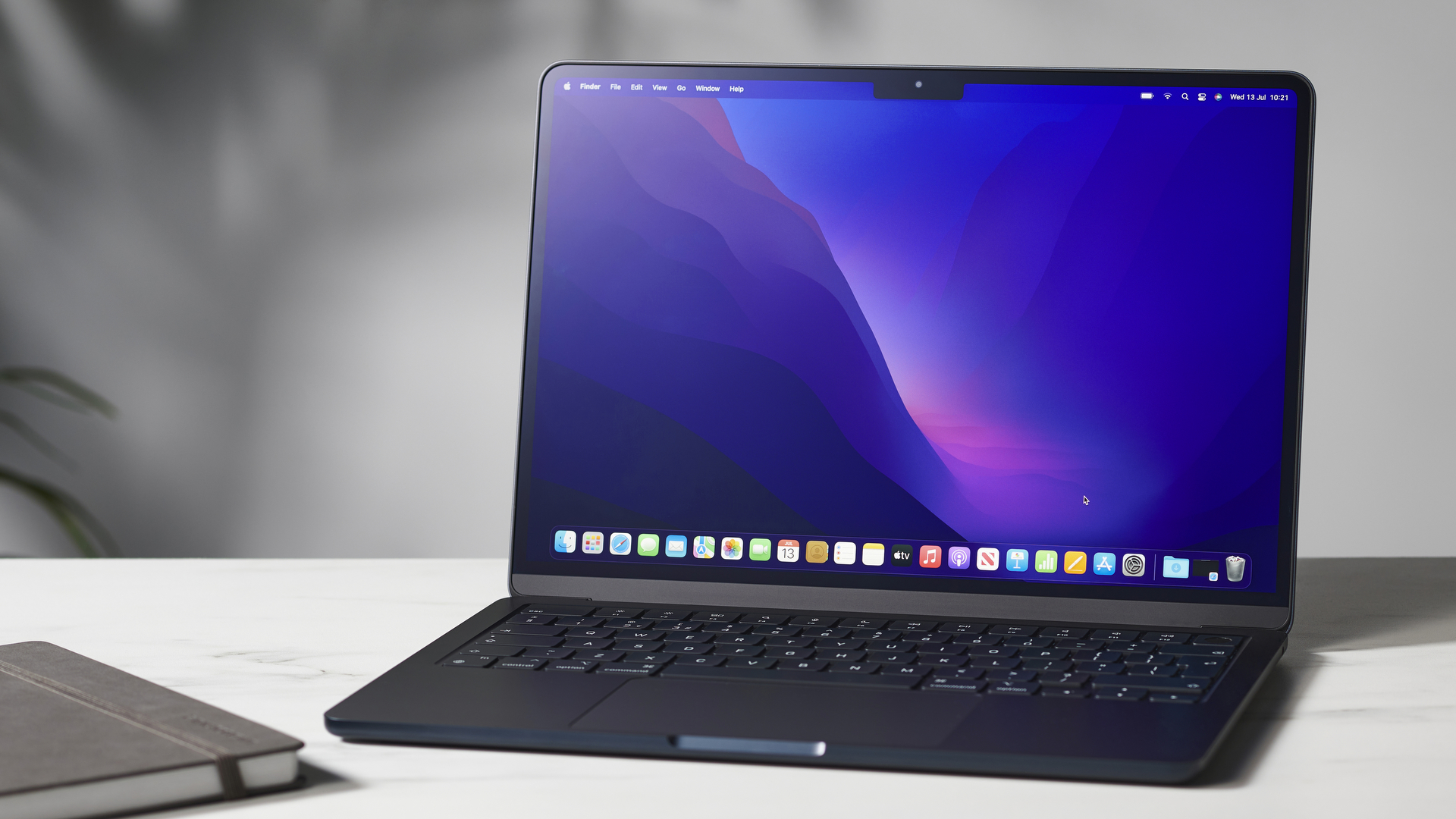
MacBook Air vs Chromebook: Performance
This is going to be a fairly short category to judge. Even the best Intel-powered premium Chromebooks struggle to keep up with Apple’s blazing-fast M1 and M2 silicon, which performs almost unreasonably well considering that Apple only introduced its own chips in 2020.
Chromebooks tend to use lower-powered chips to keep the price down. Fortunately, ChromeOS isn’t a demanding operating system, so it can run smoothly on low-end hardware - it’s worth looking into the processor of any laptop you plan to buy, though. Intel and Qualcomm Snapdragon chips are generally fine, but MediaTek CPUs are only worth picking in very budget Chromebooks. Some Chromebooks will use outdated chips, so researching the launch date of the CPU in question is a good idea.
While neither MacBooks nor Chromebooks are ideal for gaming, the MacBook Air’s M-series chips have a massive edge in graphical performance as well. While Windows laptops may come with a dedicated graphics card, Chromebooks typically use processor-integrated graphics, and the M1/M2 iGPUs are simply superior. You won’t be playing the latest games, but the MacBook Air can handle some graphically-intensive tasks like photo editing and 3D rendering.
Winner: MacBook Air
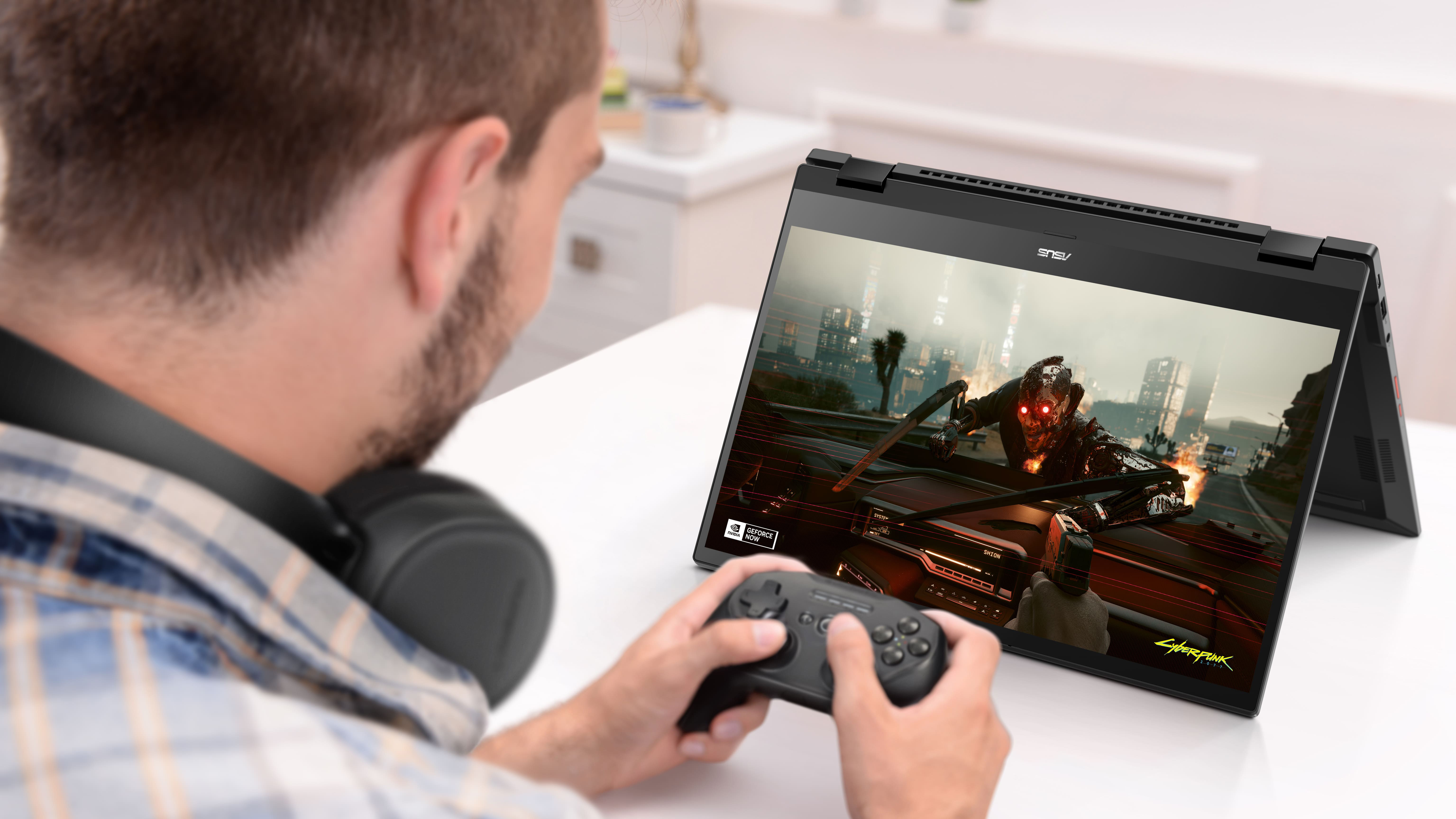
MacBook Air vs Chromebook: Design
Sure, personal taste is a big factor here, but even the most Apple-loathing individual (including this writer) has to admit that the current MacBook Air is a lovely, sleek little laptop. Apple has long made its mark on the tech industry with stylish, minimalist product designs, and this is no exception.
Chromebooks, once again, run the gamut from ‘aesthetically chic’ to ‘downright uggo’. If you’re only going to spend $250 on a Chrome-powered laptop for a child, it’s probably going to look like crap with chunky screen bezels and blocky keys. Some premium Chromebooks look incredible, like the aforementioned HP Elite Dragonfly model.
One upside to the oft-unappealing budget Chromebook is that they tend to be a bit more rugged than other laptops, designed with small, clumsy hands in mind. A cheap 2-in-1 Chromebook with a sturdy plastic casing and a robust screen hinge can be an excellent pick if you’re looking for a laptop-tablet hybrid for a younger kid to do schoolwork and watch YouTube on.
Winner: Draw
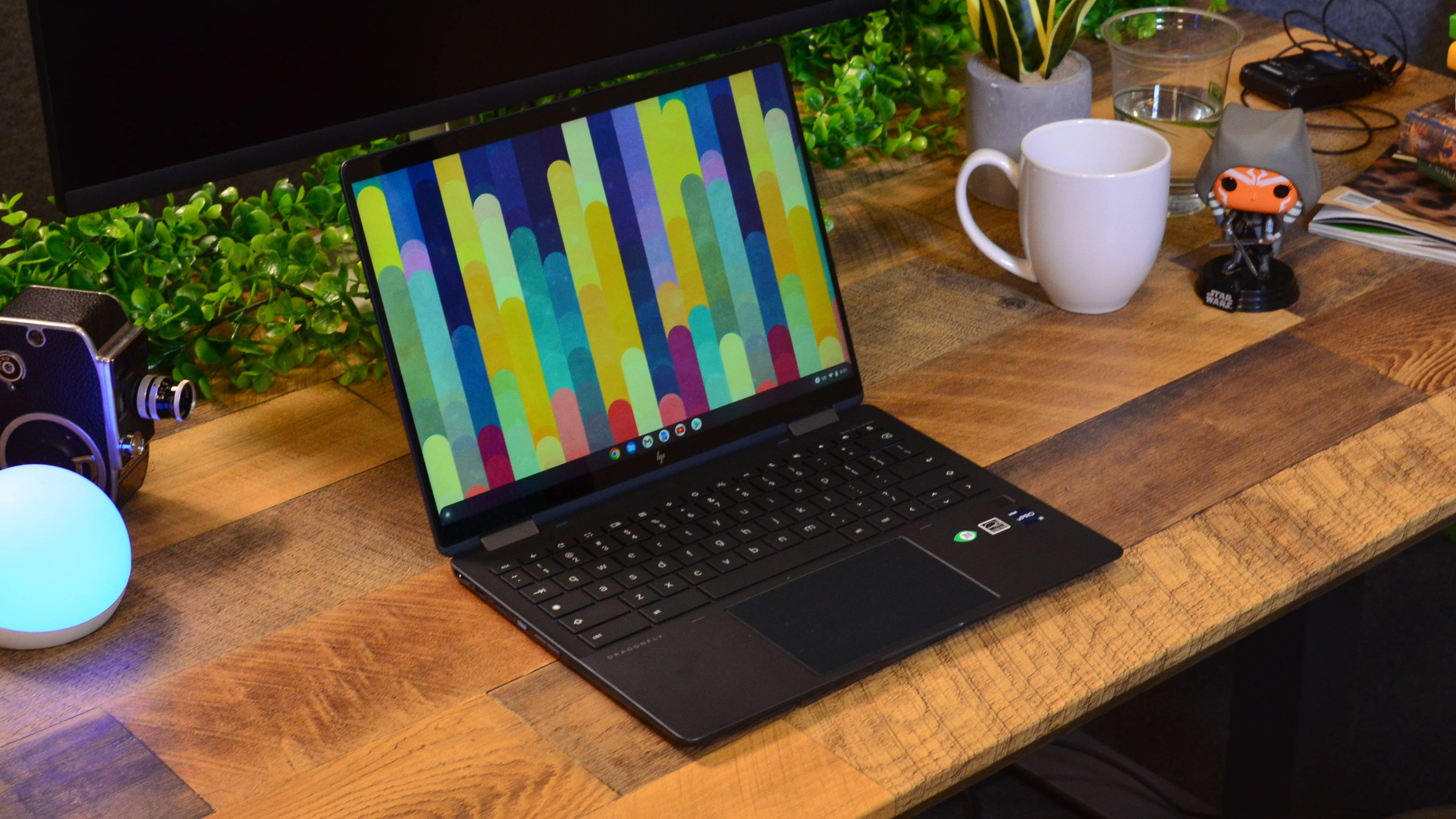
MacBook Air vs Chromebook: Which should you choose?
MacBook Air vs Chromebook: Which should you choose?
We’re going to bend the rules a little here and make an outright recommendation despite the overall tie in our results. If you can afford the asking price, get a MacBook Air: it’s a gorgeous, powerful, lightweight laptop where the only real drawback is the cost.
Conversely, if you’re on a tight budget - or want to buy a cheap laptop for a kid - a Chromebook is the right call. They’re comparatively limited when it comes to capabilities and performance against MacBooks, but if all you want to do is straightforward work and web browsing, they can comfortably handle it.
It’s also worth noting that with the newly supported Google Play Store functionality on Chromebooks, you can now play some of the best Android games on any Chromebook. If you’re willing to subscribe to a game-streaming service like Nvidia GeForce Now, you can play all the latest games on whatever hardware you like.

Christian is TechRadar’s UK-based Computing Editor. He came to us from Maximum PC magazine, where he fell in love with computer hardware and building PCs. He was a regular fixture amongst our freelance review team before making the jump to TechRadar, and can usually be found drooling over the latest high-end graphics card or gaming laptop before looking at his bank account balance and crying.
Christian is a keen campaigner for LGBTQ+ rights and the owner of a charming rescue dog named Lucy, having adopted her after he beat cancer in 2021. She keeps him fit and healthy through a combination of face-licking and long walks, and only occasionally barks at him to demand treats when he’s trying to work from home.